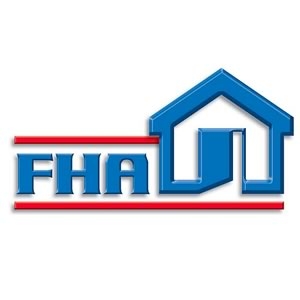Home Mortgage Demystified: A Detailed Evaluation of Finance Programs Tailored to Fit Your Financial Scenario and Goals
Navigating the landscape of home mortgage commonly offers a daunting challenge, compounded by a myriad of programs designed to meet diverse monetary requirements. Comprehending the differences between adjustable-rate and fixed-rate mortgages, as well as government-backed options like FHA and VA car loans, is important for making informed decisions. Each program uses distinct advantages customized to specific scenarios, yet the complexity of eligibility needs and rate of interest can cover clearness. As we check out these details, one need to consider exactly how to align these options with personal monetary goals to unlock the most beneficial pathway to homeownership.
Comprehending Mortgage Fundamentals
Although numerous individuals desire homeownership, comprehending the basics of mortgage is essential to making educated financial decisions. A home mortgage, additionally called a home mortgage, is a financial item that permits individuals to obtain cash to purchase genuine estate. The borrower is called for to pay back the financing amount, together with passion, over a collection duration, generally varying from 15 to three decades.
Key components of home finances include the principal, which is the amount obtained, and the passion rate, which figures out the expense of loaning. Lenders analyze different elements, such as credit rating earnings, rating, and debt-to-income ratio, to establish eligibility and funding terms. In addition, customers ought to be aware of the relevance of deposits, which can affect funding authorization and influence month-to-month settlements.
Recognizing financing amortization is also vital; this refers to the gradual reduction of the lending balance in time with normal payments. By realizing these essential ideas, potential homeowners can navigate the home loan landscape a lot more successfully, eventually resulting in far better financial end results and a more effective home-buying experience.
Kinds of Mortgage Financings
When discovering the landscape of home financing, understanding the numerous kinds of home mortgage finances is necessary for making an educated selection. Mortgage can largely be categorized right into adjustable-rate and fixed-rate home mortgages (ARMs) Fixed-rate home loans supply a constant interest price and regular monthly settlement over the loan's term, giving security, usually for 15 to 30 years. This predictability interest property owners who prefer budgeting certainty.
Conversely, ARMs have rates of interest that vary based upon market problems, normally beginning less than fixed-rate choices. Nonetheless, these prices can change occasionally, potentially boosting month-to-month settlements gradually. Customers that prepare for refinancing or moving prior to substantial price changes may find ARMs beneficial.
Furthermore, government-backed lendings, such as FHA, VA, and USDA car loans, provide to details demographics and offer various advantages like lower deposits and versatile debt requirements. Standard car loans, not insured by the government, typically need higher credit score ratings yet can give affordable prices for economically steady debtors - FHA home loans. Comprehending these finance kinds enables prospective home owners to pick the home loan that lines up finest with their economic scenario and lasting goals
Secret Eligibility Requirements
Navigating the qualification requirements for a mortgage funding is a critical action in the home-buying process. Comprehending these demands can considerably streamline your application and boost your possibilities of approval.
The primary variables affecting eligibility consist of credit report, earnings security, use this link debt-to-income (DTI) ratio, employment history, and deposit amount. The majority of loan providers require a minimal credit report of 620 for traditional car loans, while government-backed loans may have much more forgiving requirements. A secure earnings, showed with consistent work or self-employment records, is necessary for lenders to analyze your ability to pay off the car loan.
The DTI proportion, which contrasts your month-to-month debt repayments to your gross regular monthly income, normally should not surpass 43%, though some loan providers might enable greater ratios in particular situations. In addition, the size of your down repayment can affect qualification; while a larger deposit might boost your chances, certain programs offer options for minimal down repayments.
Finally, loan providers will certainly examine your total economic profile, consisting of readily available assets and liabilities, to ensure you are economically qualified of maintaining homeownership. Familiarizing on your own with these crucial qualification needs will equip you in the home mortgage application trip.

Rate Of Interest Discussed
Understanding the intricacies of rates of interest is fundamental to making educated decisions in the mortgage process. Rate of interest represent the cost of obtaining money and are shared as a percent of the loan quantity. They can substantially impact your month-to-month home loan payments and the total cost of your home funding.
Rates of interest can be classified right into taken care of and flexible rates. Dealt with rates continue to be constant throughout the financing term, giving predictability in regular monthly settlements. On the other hand, flexible rates rise and fall based upon market problems, which can result in reduced initial repayments but might increase gradually.
Numerous elements affect rate of interest, including the debtor's credit history, car loan term, and prevailing economic problems. Lenders assess these variables to establish the danger linked with lending to a specific debtor. Generally, a higher credit score can cause reduced rate of interest, while longer finance terms might cause higher prices.
Additionally, wider check financial indicators, such as inflation and monetary policy, play a crucial function fit rate of interest prices. Comprehending these components allows borrowers to better navigate the lending landscape and choose choices that line up with their monetary goals.
Selecting the Right Financing Program
Picking the proper lending program is critical for customers intending to optimize their funding alternatives. With various car loan kinds available, consisting of fixed-rate, adjustable-rate, FHA, and VA lendings, comprehending the subtleties of each can dramatically affect lasting financial health.
Debtors must first evaluate their monetary scenario, consisting of credit history scores, revenue security, and debt-to-income proportions (FHA home loans). A fixed-rate mortgage provides predictability with consistent regular monthly settlements, perfect for those planning to stay in their homes long-term. On the other hand, variable-rate mortgages may provide reduced preliminary rates, appealing to buyers who expect relocating within a couple of years
In addition, government-backed lendings such as FHA and VA options can be beneficial for this newbie property buyers or professionals, as they commonly call for reduced down repayments and have much more forgiving credit report needs.

Conclusion
In verdict, browsing the complexities of home financings calls for a thorough understanding of various mortgage programs and their unique functions. By reviewing specific economic situations and objectives, potential debtors can make educated decisions concerning the most suitable lending choices.
Fixed-rate home loans provide a consistent interest price and month-to-month repayment over the financing's term, giving security, typically for 15 to 30 years.Furthermore, government-backed car loans, such as FHA, VA, and USDA lendings, cater to details demographics and use different benefits like reduced down payments and flexible debt needs. Many lenders call for a minimal credit rating rating of 620 for traditional lendings, while government-backed loans might have more forgiving requirements. Fixed prices remain continuous throughout the loan term, giving predictability in regular monthly settlements. Normally, a greater credit history rating can lead to reduced rate of interest rates, while longer loan terms may result in greater rates.
Comments on “FHA Home Loans: Easy Steps to Safeguard Your Dream Home”